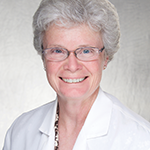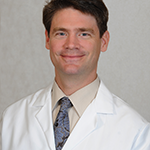“I’ve continued my professional activities, but at my own pace. I balance my professional time with my personal time, but I have not lost my connection to the rheumatology or lupus research communities that have been a part of my life for so long. Retirement was a little hard at first, but once I adjusted to doing what I wanted to do, it became easier,” she says.
Retirement can be jarring to some people. It may mean a change in identity, or giving up a title, office, travel, overseeing budgets, lectures or busy days in clinic. Some academic medical centers have created programs to help faculty members make a gentle transition.
“A few years ago, we did an analysis and found our faculty just love this place,” says Janice E. Clements, PhD, Vice Dean of Faculty Affairs at Johns Hopkins University in Baltimore, Md. “A large number of faculty were not thinking about retirement because their identity was so closely tied to being at this school.”
Johns Hopkins administrators realized senior faculty needed “a graceful place to land” when they retire, says Dr. Clements. In late 2017, the school launched its new Senior Faculty Transition Program, which includes two pathways to phased retirement, including structured, reduced hours and salary. The Hopkins program also offers resources on retirement, including information on Social Security, Medicare and other aspects of transition.
Retired faculty also needed places on campus to meet with each other, mentor junior faculty or students, and help younger researchers write grants, says Dr. Clements. “We have the physical space, including a beautiful library building that was often unused. So we turned it into a designated place for senior faculty to meet,” she says.
Department chairs in the process of retiring were involved in the program’s development. “They were already involved in mentorship and very happy about it. They are happy their faculty engagement will be formalized,” says Dr. Clements.
Delayed retirement also has a financial impact on university budgets, as senior faculty’s higher salaries do not make room for junior faculty to move up, she says. “Financially, this program supports junior faculty as well, because it frees up resources in departments for recruitment.”
Time for Family & Volunteerism
Retirement affords rheumatologists more time to devote to life outside medicine, including volunteering in the community, spending time with family, travel and hobbies.
Louis W. Heck Jr., MD, retired from his faculty position at UAB eight years ago after 30 years in clinical research and teaching. His roles included serving as the rheumatology department’s fellowship director for 10 years. Although he enjoyed the collaborative, exciting environment at his job, as well as the research breakthroughs the faculty produced, he wanted to focus more of his time on his family and volunteer pursuits.

